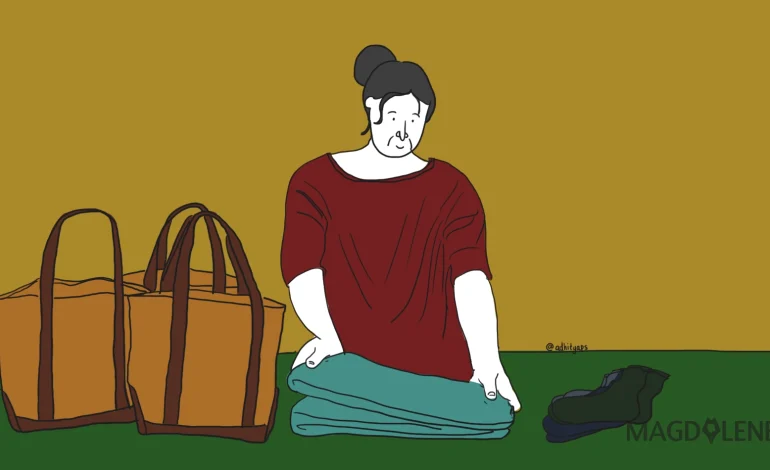As People Work From Home, Domestic Workers Find Themselves More Vulnerable

The COVID-19 pandemic has come with a myriad of unprecedented consequences that affect people across the socioeconomic groups. For office workers, the pandemic has confined them to home for the past few months, popularizing the term “WFH” (working from home). Ironically, the people who actually work at or from home are the ones deeply affected by the pandemic.
Domestic workers are one of the most vulnerable communities during the pandemic, since they mostly do not have secure work contracts and most of them are migrants who survive day by day on limited wages. The majority of domestic workers are also women, which makes them vulnerable to domestic violence that has been on the rise during the pandemic.
The International Labour Organization (ILO) estimates that in the early stage of the pandemic, on March 15, 49.3 percent of domestic workers were significantly impacted. This figure peaked at 73.7 percent on May 15, before slowing down by one percentage point a month later. The pandemic has had particularly dire impact on domestic workers around the world, manifesting in multitudes of problem.
To begin with, most domestic workers are still underpaid and discriminated. The pandemic has worsened the situation by putting them on the frontline, often without adequate protection like face masks and hand sanitation, which their employers should provide. When doing groceries or running errands, domestic workers are exposed to social contact, putting them at higher risks of infection. As many domestic workers live in cramped rooms or quarters with fellow workers, it is hard to observe social distancing optimally, given that droplet can stay on surfaces for hours.
Working from home and physical distancing policy has made employers and kids stay home all the time, increasing the workload amount. Still, many domestic workers face the threat of being fired or forced to take unpaid leave. Take Merry, for example. After working for six years for her celebrity employer, she was fired via WhatsApp and given only eight day’s worth of wage. She has been fighting for her rights through mediation.
Most domestic workers are migrants, making them prone to homelessness are they are unable to pay rent. Siti Hernia has lost her job as a domestic help in a foreign country. Completely unprepared, she has been struggling to survive as a migrant with rising debts and zero income.
Domestic workers are often subjected to discriminations and abuses. Women domestic workers are more prone to abusive behavior from their employer and lockdowns further endanger their safety by trapping them inside with nowhere else to go. Those who work in foreign countries may face racism, especially if they came from Asian countries which are perceived to be the source of the disease.
In Indonesia there are at least 4.2 million domestic workers working with weak bargaining positions and no work contracts, resulting in long working hours, low salaries, and few – or no –days off. Asri, who has been working as a domestic worker for 16 years in South Tangerang, is one of the rare ones who had the courage to negotiate with her employer on her earnings and working conditions. Generally treated as second class citizens, not all domestic workers are aware or have the courage to demand their rights. They basically receive no legal protection, especially as the much-needed bill on domestic workers protection has been stalled since 2014.
The lack of legal protection is the root of the problem. Domestic workers are not seen as formal workers, effectively putting them in what experts call modern slavery. Historically speaking, domestic work has been expected to be given for free by women in private households. The lack of government’s attention on the issue of domestic workers are unsurprisingly low, and that is a real issue.
In 2019 the advocacy group the National Network for Domestic Worker Advocacy (Jala PRT) polled 668 domestic workers in seven regions and found that 98.2 percent of the respondents earned only between 20 and 30 percent of the respective regional minimum wage. Jala PRT has been working hard to prepare domestic workers with the ability to negotiate with their employers and providing them with legal assistance if necessary.
Domestic workers have contributed significantly to society and the economy. The amount of work in caring for the children and the elderly, and maintaining a household should not be overlooked. The privileged socioeconomic class should be aware of the struggles of domestic workers and be supportive of their work. While employers are chasing their dreams by working or pursuing further education, domestic workers make sure their homes are clean, their families cared for and their dinners warm. Change is slow and difficult, but little steps are needed to bring a greater impact in the future.
This article won the Write to Donate Essay Contest on the topic “Impact of COVID-19 on Marginalized Community” held by the English Debating Society of Universitas Indonesia and Magdalene.






















